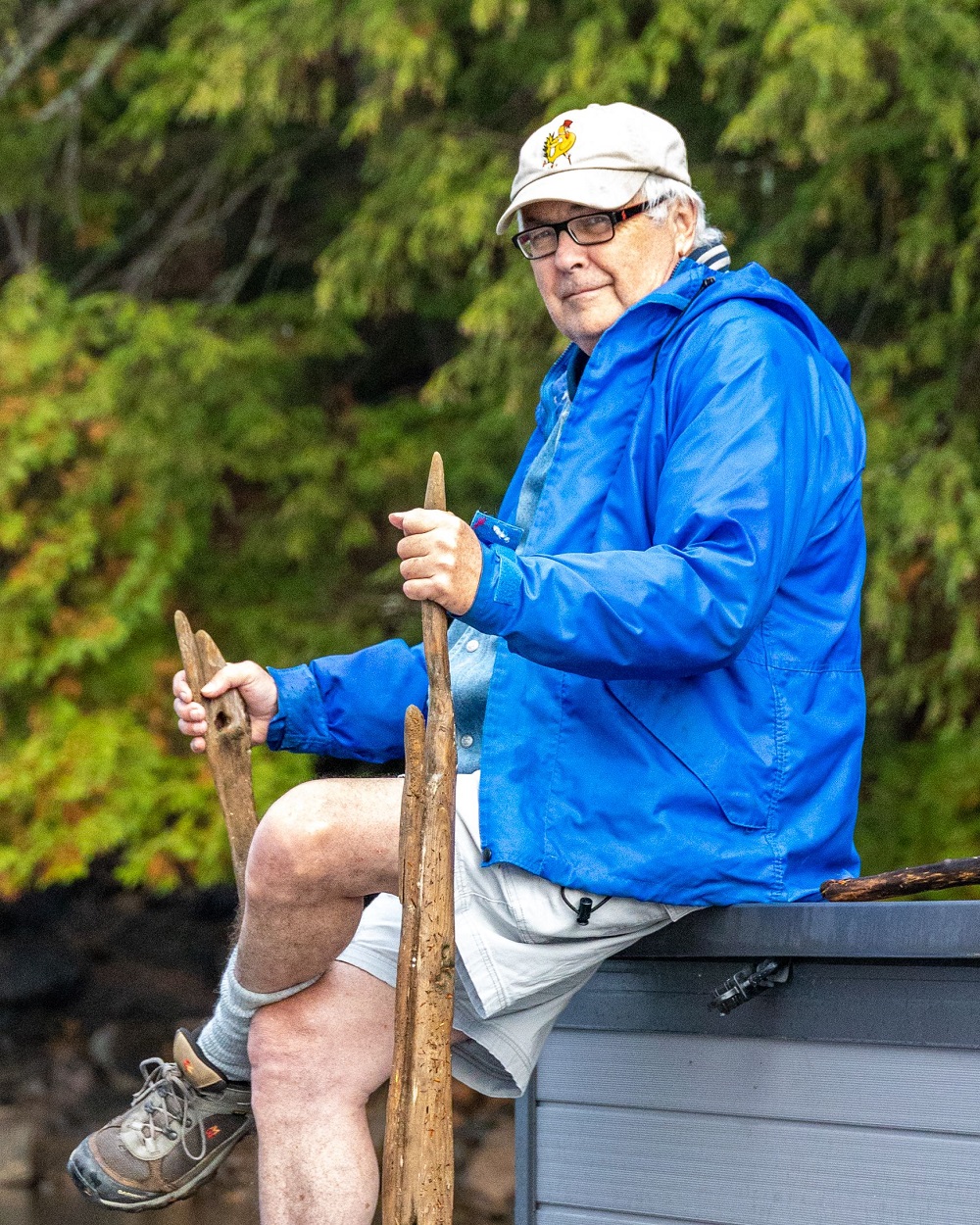Eels Lake cottager Sandy Kilgour is calling on the Ministry of Natural Resources and Forestry (MNRF) to re-evaluate proposed changes to winter ice fishing regulations in the region.
As reported by The Highlander last November, the ministry is looking to implement new legislation that would outlaw ice fishing of brook trout and lake trout on all lakes in Fisheries Management Zone (FMZ) 15, which encompasses Haliburton County, considered to have low natural populations.
In its plan, the MNRF says the zone is experiencing high pressure from a wide range of users, including commercial tourist operators, resident and non-resident anglers, and Indigenous subsistence fishers. Natural Coldwater fish populations have been in decline in the area for years, leading to the ministry proposing new, condensed seasons.
While the plan appears to support the regeneration of fish populations in lakes, it could have the opposite effect on Eels Lake, Kilgour contends. The plan proposes the elimination of all existing winter fish sanctuaries, with the exception of Lake Joseph in Muskoka.
“Eels Lake has been a designated winter fish sanctuary for many, many years – after the exploitation and overharvesting of lake trout, primarily through ice fishing in the 80s and 90s,” he said. “That means there’s no winter fishing for any species at all, it’s closed.”
The new plan introduces a 30-day window for ice fishing on any lake, beginning Jan. 1, 2025.
The Eels Lake Cottagers Association, where Kilgour is a director, launched a petition in June calling on the ministry to maintain Eels Lake’s winter sanctuary designation. To date, it has been signed by 635 people.
The ELCA is worried about the implications of opening Eels Lake up for ice fishing again. He notes a lake trout rehabilitation program, in operation since 2011, has led to a re-emergence of the species in recent years.
Garnet Nelson, a resident of Eels Lake since 1968 and avid angler, agrees.
The program is going really well – there are some natural lake trout coming to the lake, spawning here and thriving here,” Nelson said.
Kilgour said he recently discussed the issue with two resident anglers who have fished on Eels Lake for decades.
They said it takes about 10 years before lake trout begin to spawn themselves and become mature. We’re at that point now, where we’re seeing some positive results,” Kilgour said. “The anglers said of about 200 catches in 2022, 70 of them were natural lake trout that reproduced here. That’s in part because of the winter sanctuary designation.”
The ministry states the 30-day window would allow anglers to fish for attractive species such as walleye, which they contend has a presence in Eels Lake. Nelson doesn’t agree.
“I can assure you there’s no walleye here – they’ve all died out. If we could get the ministry to do a new krill census here, they’d find that out,” Nelson said. He notes the last census was completed 13 years ago. “The data they’re using today and posting online is the same [as back in 2010]. There’s no way those numbers are true or accurate, it’s impossible.”
Kilgour said if ice fishing is permitted on the lake following the implementation of the new plan without modification, it could result in the devastation of the natural lake trout population that has built up over the past decade.
“We’ll be right back at square one,” he said.
“The ministry is saying fishermen will have to put any trout caught back into the water, but even if you come across a responsible angler who would do that… the survival rate of a trout after it’s been pulled from the water is about 50 per cent.”
Another permanent resident of Eels Lake stated to Kilgour over the summer, he remembered looking out at the lake years ago, when there would be 30 or 40 fishing huts out there in the winter.
“I just don’t want to see us get back to that,” Kilgour said. “I want to know what the downside is to allowing Eels Lake to maintain its designation, to continue the lake trout rehabilitation program and really giving it a chance to succeed.”
Nelson added, “Nobody likes fishing more than me and my family, but we realize the sanctuary is in place for a reason. We’re trying to look after the lake as best we can. The stance the ministry is taking is wrong.”
The Highlander was unable to secure an interview with ministry officials, while questions submitted went unanswered.
Ministry spokesperson Sarah Figueiredo said the plan had not yet been finalized.
“MNRF is reviewing and considering the many comments received on the draft plan. Once all comments are considered and feedback is obtained from the FMZ 15 advisory council, it will be posted on the environmental registry of Ontario, along with a summary of the types of comments received and any updates made to the plan,” Figueiredo wrote in an email.
“The implementation of the proposed regulation changes for FMZ 15 requires approval of the draft fisheries management plan. The plan will be implemented following approval,” she added.
It was noted the earliest any changes would come into effect is Jan. 1, 2025.





